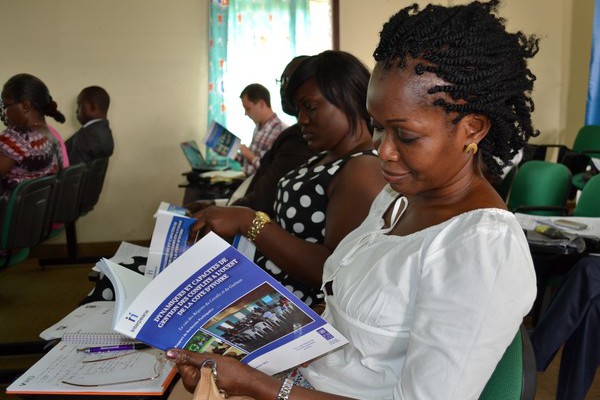Since the end of the socio-political crisis in 2011, the situation in Côte d’Ivoire has become more stable and the country has gradually entered a reconstruction phase. A number of major infrastructure projects initiated by the state have resulted in continued economic growth. Despite these positive developments, the socio-political situation remains fragile. Tensions between communities exist within the city of Abidjan, and in the forest area of the west, both areas being home to much of the socio-political tensions and violence that have affected Côte d’Ivoire for over a decade. The October 2018 local elections have confirmed the existence of both open and underlying tensions between the various political parties in Côte d’Ivoire. In various localities, the results of the elections have been questioned by parts of the population or the losing parties, sometimes triggering violent events, thus confirming growing concerns about the nature of political competition for the 2020 presidential elections.
Interpeace has been engaged in Côte d’Ivoire since 2012, working with local partner Indigo Côte d’Ivoire. The programme seeks to establish inclusive, participatory and change-oriented dialogue processes, with a strong emphasis on conflict management concerning land and youth violence.
In 2013, Interpeace and Indigo Côte d’Ivoire conducted participatory research in the western regions of the country. This research revealed that the main challenge for rebuilding lasting peace and trust in the region is a widespread feeling of ‘self-victimization.’ Addressing this sentiment is a fundamental condition for constructive dialogue that develops concrete solutions to build sustainable peace.
In 2015, Interpeace and Indigo Côte d’Ivoire engaged communities in three communes of Abidjan, in a participatory research to identify factors that pose challenges to peace. The participatory research focused on violence involving youth in three neighborhoods: Abobo, Yopougon and Treichville. Factors contributing to violence identified by the participants in the process were: increased tensions between various social groups due to competition around meager economic opportunities; the disintegration of the educational system; the transformation of family structures and the emergence of new models of social success; and the struggle for control of economic spaces such as bus stations.
Throughout 2016 and 2018, Interpeace and Indigo managed to generate a deeper understanding of the phenomenon of the youth gangs called “microbes” at all levels (community, institutions, academic, media), through research and policy work. By critically questioning the state response focused on security and economic integration, our policy work has contributed to a nascent and increasing consideration of the social – family and community – dimension by the authorities and the emergence of new synergies for action. Our actions have also resulted in Interpeace-Indigo being perceived and solicited as major and credible players/ “experts” on the phenomenon, capable of action on the ground. Interpeace and Indigo Côte d’Ivoire have managed to engage a diverse range of stakeholders, notably the national authorities and the United Nations, who have welcomed the unique peacebuilding approach and value the research results which contribute to their planning processes.

